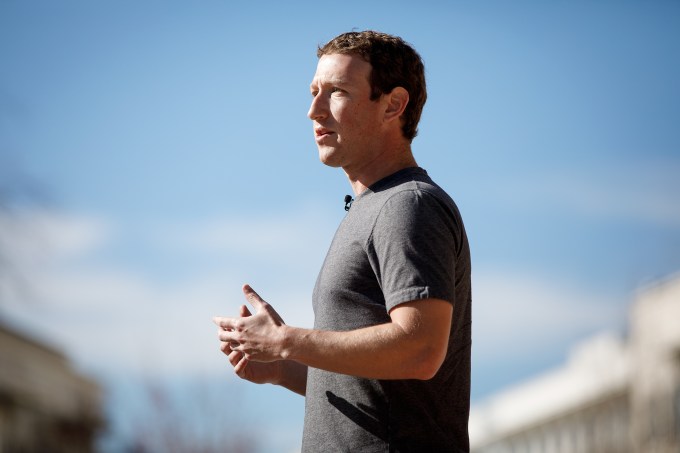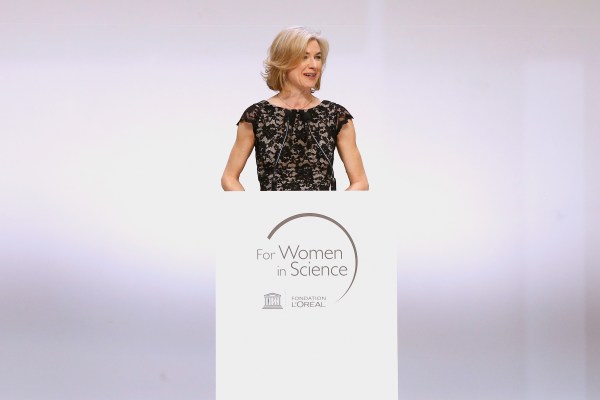This week, the CRISPR-Cas9 patent case came to a close, an encrypted messaging app went open source and Facebook announced some big changes to its video product. These are some of the notable stories in tech from this week. You can also receive this post as a weekly newsletter, delivered to your inbox on Saturday mornings.
1. A judge has determined that CRISPR-Cas9 patents belong to the Broad Institute of MIT and Harvard, not UC Berkeley. In what was a heated court hearing over ownership of these gene-editing patents, the ruling suggests that Jennifer Doudna and Emmanuelle Charpentier’s work at UC Berkeley was not distinct enough. The important piece for Doudna is that everyone can at least start to move forward in applying the technology. “In the end, as scientists, we would all like to see this technology help people and ultimately that’s got to be the goal that we all have,” she told TechCrunch.

2. Mark Zuckerberg released a 5,000 word letter to the “global community” outlining what he calls the next phase of Facebook’s mission: support, safety, information, civic engagement and inclusion. Some argue that this sprawling letter is just another feel-good effort put forth by the CEO to appear introspective, and that the real story may be in what was left out of the manifesto.
3. Disney-owned Maker Studios cut ties with PewDiePie, YouTube’s top star, over a series of videos he posted containing anti-Semitic clips and messages. Soon after, the vlogger’s YouTube Red reality series was cancelled. Here’s what PewDiePie had to say.
4. Facebook really wants users to upload and consume more video content, and the network’s video platform has been evolving for some time now. Facebook VP of partnerships Dan Rose announced that the company is launching a series of apps for Apple TV, Amazon Fire TV and Samsung Smart TV. The announcement also came with the news that Facebook video will adhere to the audio settings of whatever device a video is being viewed on. So if your sound is on, audio will play. Facebook also will no longer crop vertical video, and a new feature will allow users to pull a video to the side of the feed while they continue scrolling.
5. Thinking about buying Snap stock? Goodwater Capital, a two-year old venture firm, released a comprehensive report of pre-IPO Snap. The snapshot contains a business overview, key trends, summary financials, projections and lots of useful graphics and charts.
6. It’s no secret that Twitter has a growth problem. But the company also has an ad revenue issue, as evidenced by its last earnings report in which YoY ad revenue declined in the millions. We learned that Twitter is reassessing some of its direct response business, Promoted Tweets and the TellApart business. None of these products have been shuttered, but sources say Twitter is beginning to isolate products that aren’t getting advertiser buy-in, and could stop supporting them.
7. Considering the size of the cloud market, AWS is the undeniable leader — but how did the company achieve its status of dominance over companies like Google, Microsoft, IBM and Oracle? AWS CEO Andy Jassy says success can be attributed to disruption dynamics. The competition simply didn’t believe there was enough of a market to be concerned about, so they didn’t build fast enough.
8. Facebook Jobs has arrived. Facebook Business pages will now be able to post job openings to the News Feed, as well as host them on a Jobs tab. LinkedIn has not offered options for people seeking part-time or hourly jobs, and Facebook has stepped in to fill this gap.
9. Encrypted messaging app Wickr has gone open source. The app is publishing its code for Wickr Professional, the subscription-based enterprise version of its free messaging app, for public inspection. This is notable because “by opening their code, they are giving the engineering community strong reasons to trust their platform,” says security expert Dan Kaminsky.
10. Former VP of marketing at Magic Leap Tannen Campbell was originally brought into the augmented reality startup to help improve the billion-dollar company’s appeal to women. Now, she is suing Magic Leap for sexual discrimination.
